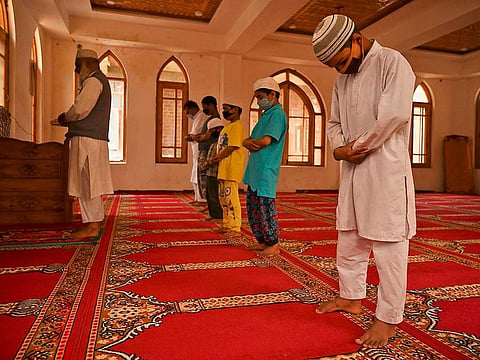US warns of coronavirus scapegoating in India, Pakistan
US envoy for religious freedom points to physical and online attacks against Muslims

Washington: The United States on Thursday voiced alarm over the targeting of religious minorities in both India and Pakistan, warning against a search for internal scapegoats during the coronavirus pandemic.
In a rare statement of US concern over India, Sam Brownback, the US ambassador-at-large for international religious freedom, pointed to both physical and online attacks against Muslims.
“In India, we’ve seen reports of unfortunate COVID-related rhetoric and harassment, particularly against the Muslim community, exacerbated by fake news reports - misinformation - being shared via social media,” he told reporters.
He did not blame the government, saying he was “encouraged” by public statements, including a call by Prime Minister Narendra Modi for unity.
Fact-checkers by AFP have debunked hundreds of social media posts in India that targeted Muslims, including dubious videos that showed members of the minority licking fruit for sale.
The US Commission on International Religious Freedom, which advises but does not set government policy, last month said that India should be put on a blacklist due to its “dramatic” downturn in religious freedom under Modi.
New Delhi sharply rejected the criticism and it is highly unlikely that the State Department would act against India, an increasingly close ally of the United States.
Brownback also voiced concern about India’s neighbour Pakistan, whose new commission on religious minorities does not include the Ahmadi sect, which has faced years of deadly violence.
“I really think they missed an opportunity by pulling off the Ahmadi Muslim that was nominated to be on it,” Brownback said.
“I think their wilting to the public pressure really sends a bad signal,” he said.
Referring to the pandemic, Brownback said: “People are tense anyway, and then they look for a scapegoat, and then unfortunately you get somebody that gives them one and you’re off at the races.”
Sign up for the Daily Briefing
Get the latest news and updates straight to your inbox


